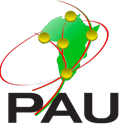Reinforcing Higher Education in Africa
With 70% of the entire population under 30, youth are one of Africa’s greatest reasons for optimism, and access to higher education for this youth should be a major driver for economic development, social cohesion and lasting peace. Yet, tapping into this potential continues to face several challenges. Ways of tackling these challenges was at the heart of a UNESCO Chairs Seminar on 21 September 2023 under the theme Reinforcing Higher Education in Africa.
Framing the discussions were UNESCO’s 2022 Higher Education Road Map and Campus Africa, one of the flagship programmes of UNESCO’s Operational Strategy for Priority Africa (2022-2029). Campus Africa aims to build integrated, inclusive, and quality tertiary education systems and institutions, for the development of inclusive and equitable societies on the continent, as outlined by Rita Bissoonauth, Director of the UNESCO Liaison Office to the African Union. Borhene Chakroun, Director of UNESCO’s Policies and Lifelong Learning Systems Division set the tone of the debate, saying in his opening remarks that, “universities must become incubators for social transformation.”
The various speakers identified several challenges, including the region’s low enrolment in higher education, which is around 9%, compared to a global average of 42%. Whilst there is an increase in demand for higher education, universities in the region are saturated and unable to provide an adequate learning environment, including for higher technical education. Higher education on the continent is currently underfunded at the national level, including investment in research and development which stands at an average of 0.38% of GDP (by comparison to 2.25% in Europe and North America).
Other speakers also pointed to the high youth unemployment rate in Africa and the need to better align the skills of graduates to the labour market: currently, some 20-50% of graduates cannot find a job after graduation. The lack of quality assurance authorities and mechanisms in Africa, by comparison to other continents, was also underscored, whilst Prof. Jean Koulidiati, Rector, Pan-African University, also pointed to the inadequate teacher training.
Read the full article: https://www.unesco.org/en/articles/reinforcing-higher-education-africa


